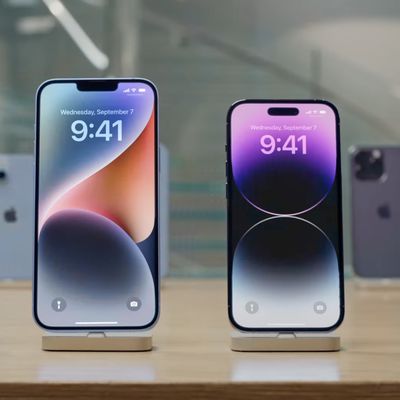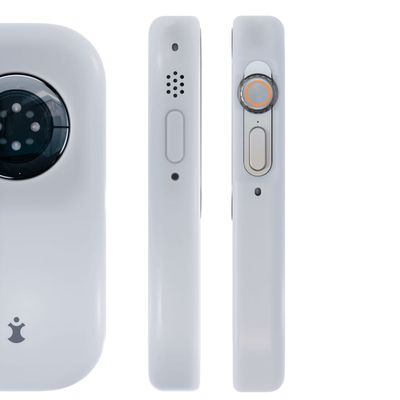 Apple and the U.S. Federal Trade Commission have entered into a consent decree over in-app purchases on the App Store. In a memo to Apple employees, CEO Tim Cook wrote that the company felt it had no other choice.
Apple and the U.S. Federal Trade Commission have entered into a consent decree over in-app purchases on the App Store. In a memo to Apple employees, CEO Tim Cook wrote that the company felt it had no other choice.
According to the agreement, Apple will be required to provide full refunds to parents whose children purchased unauthorized in-app items, setting a floor of $32 million on refunds.
A large part of the FTC's concern was related to a fifteen-minute window after a password is entered on the App Store, during which other purchases can be made without a password being entered. Apple will now be required to notify users that the fifteen-minute window exists to obtain "expressed and informed consent" from its customers.
In early 2013, Apple settled a class action lawsuit originally filed by parents after their children ran up hundreds of dollars on in-app purchases in freemium games.
In the memo, which was obtained by Re/code, Cook wrote that it didn't "feel right for the FTC to sue over a case that had already been settled" and it "smacked of double jeopardy".
From: Tim Cook
Date: January 15, 2014
Subject: FTC announcementTeam,
I want to let you know that Apple has entered into a consent decree with the U.S. Federal Trade Commission. We have been negotiating with the FTC for several months over disclosures about the in-app purchase feature of the App Store, because younger customers have sometimes been able to make purchases without their parents’ consent. I know this announcement will come as a surprise to many of you since Apple has led the industry by making the App Store a safe place for customers of all ages.
From the very beginning, protecting children has been a top priority for the App Store team and everyone at Apple. The store is thoughtfully curated, and we hold app developers to Apple’s own high standards of security, privacy, usefulness and decency, among others. The parental controls in iOS are strong, intuitive and customizable, and we’ve continued to add ways for parents to protect their children. These controls go far beyond the features of other mobile device and OS makers, most of whom don’t even review the apps they sell to children.
When we introduced in-app purchases in 2009, we proactively offered parents a way to disable the function with a single switch. When in-app purchases were enabled and a password was entered to download an app, the App Store allowed purchases for 15 minutes without requiring a password. The 15-minute window had been there since the launch of the App Store in 2008 and was aimed at making the App Store easy to use, but some younger customers discovered that it also allowed them to make in-app purchases without a parent’s approval.
We heard from some customers with children that it was too easy to make in-app purchases, so we moved quickly to make improvements. We even created additional steps in the purchasing process, because these steps are so helpful to parents.
Last year, we set out to refund any in-app purchase which may have been made without a parent’s permission. We wanted to reach every customer who might have been affected, so we sent emails to 28 million App Store customers – anyone who had made an in-app purchase in a game designed for kids. When some emails bounced, we mailed the parents postcards. In all, we received 37,000 claims and we will be reimbursing each one as promised.
A federal judge agreed with our actions as a full settlement and we felt we had made things right for everyone. Then, the FTC got involved and we faced the prospect of a second lawsuit over the very same issue.
It doesn’t feel right for the FTC to sue over a case that had already been settled. To us, it smacked of double jeopardy. However, the consent decree the FTC proposed does not require us to do anything we weren’t already going to do, so we decided to accept it rather than take on a long and distracting legal fight.
The App Store is one of Apple’s most important innovations, and it’s wildly popular with our customers around the world because they know they can trust Apple. You and your coworkers have helped Apple earn that trust, which we value and respect above all else.
Apple is a company full of disruptive ideas and innovative people, who are also committed to upholding the highest moral, legal and ethical standards in everything we do. As I’ve said before, we believe technology can serve humankind’s deepest values and highest aspirations. As Apple continues to grow, there will inevitably be scrutiny and criticism along our journey. We don’t shy away from these kinds of questions, because we are confident in the integrity of our company and our coworkers.
Thank you for the hard work you do to delight our customers, and for showing them at every turn that Apple is worthy of their trust.
Tim
In response, the FTC said that its proposed order is more robust than the settlement in the class action lawsuit, and that the resolution in that lawsuit didn't require Apple to change its behavior. Additionally, the FTC's settlement does not put a cap on the amount that could be refunded to parents, while the lawsuit's did.




















